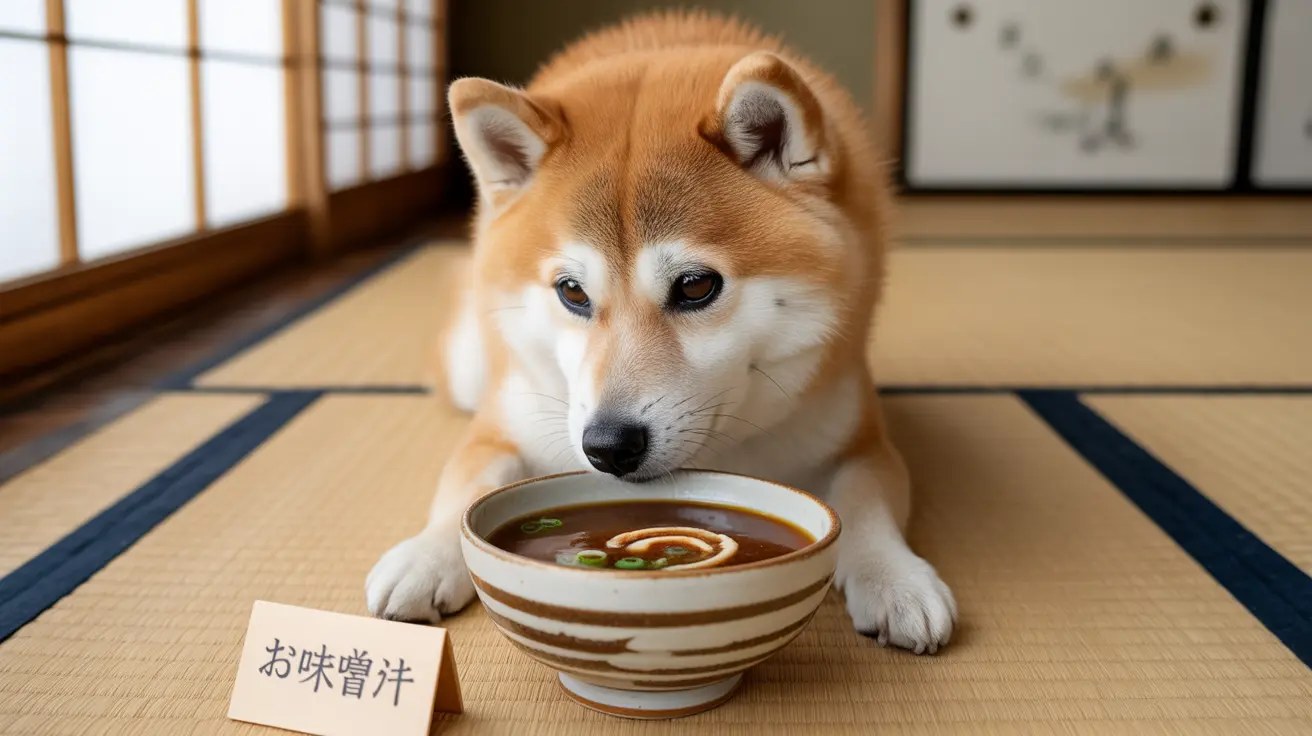As pet owners increasingly explore sharing human foods with their furry friends, miso soup has become a topic of interest. This traditional Japanese dish, while nutritious for humans, presents several important considerations when it comes to dogs. Let's explore whether miso soup is safe for your canine companion and what you need to know before sharing this popular Asian dish.
Understanding the potential risks and benefits of miso soup for dogs is crucial for responsible pet ownership. While small amounts might not be immediately dangerous, there are several important factors to consider before letting your dog sample this savory broth.
The Main Components of Miso Soup and Their Effects on Dogs
Traditional miso soup contains several ingredients that can affect your dog's health:
Miso Paste
The fermented soybean paste that forms the base of miso soup is high in sodium and contains concentrated soy proteins. While not toxic, these components can cause problems for dogs, especially those with existing health conditions or soy sensitivities.
Common Additives
Many versions of miso soup contain ingredients that are toxic to dogs:
- Onions and garlic (highly toxic)
- Scallions (can cause anemia)
- High sodium content (dangerous for dogs)
- MSG (potential neurological issues)
Health Risks of Feeding Miso Soup to Dogs
Sodium Concerns
The high salt content in miso soup poses significant risks to dogs, including:
- Dehydration
- Excessive thirst and urination
- Potential kidney strain
- Salt poisoning in severe cases
Digestive Issues
Dogs may experience various digestive problems from consuming miso soup:
- Stomach upset
- Diarrhea
- Vomiting
- Gas and bloating
When to Contact Your Veterinarian
If your dog consumes miso soup, watch for these warning signs:
- Excessive thirst or urination
- Lethargy or weakness
- Vomiting or diarrhea
- Signs of dehydration
- Unusual behavior or disorientation
Safe Alternatives to Miso Soup for Dogs
Instead of miso soup, consider these dog-friendly options:
- Plain, low-sodium chicken broth
- Dog-specific bone broth
- Plain, cooked vegetables
- Commercial pet-safe broths
Conclusion
While miso soup isn't strictly toxic to dogs in very small amounts, the risks generally outweigh any potential benefits. The high sodium content, potentially harmful ingredients, and risk of digestive issues make it a food best kept away from your canine companion. Instead, opt for dog-specific alternatives that can provide similar benefits without the associated risks.
Frequently Asked Questions
Can dogs safely drink miso soup, and what are the risks of its high sodium content?
Dogs should not regularly drink miso soup due to its high sodium content. The excessive salt can lead to dehydration, kidney problems, and in severe cases, salt poisoning. Even small amounts can be risky for dogs with heart or kidney conditions.
Are the common ingredients in miso soup, like green onions or tofu, harmful to dogs?
Yes, several common miso soup ingredients are harmful to dogs. Green onions, garlic, and other allium family members are toxic and can cause anemia. While plain tofu is generally safe in moderation, the other ingredients make miso soup unsuitable for dogs.
What symptoms should I watch for if my dog accidentally consumes miso soup?
Watch for excessive thirst, frequent urination, vomiting, diarrhea, lethargy, and signs of dehydration. In cases of significant consumption or if your dog shows any concerning symptoms, contact your veterinarian immediately.
Are there any health benefits of miso or fermented soy products for dogs?
While miso contains probiotics and nutrients beneficial to humans, these benefits don't necessarily translate to dogs. The risks of high sodium content and potentially harmful ingredients outweigh any possible benefits.
What are safe alternatives to miso soup for adding flavor and hydration to my dog's diet?
Safe alternatives include plain, low-sodium chicken broth, commercial pet-safe broths, and water enhanced with dog-friendly vegetables. These options provide hydration and flavor without the risks associated with miso soup.






